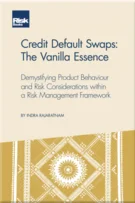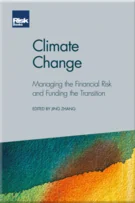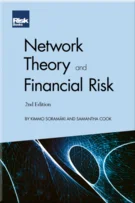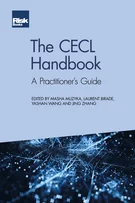Using Systems Thinking to Enhance Country Risk Assessment
Victoire de Groote and Seth Aslin
Preface: Two economists’ views on the bank-sovereign linkage
Introduction
Assessing Country Risk: A Practical Guide
Sovereign Risk: Characteristics, History and a Review of Recent Research
The Arab Spring: Insights for Political Risk Analysis
The Eurozone Crisis: The Forgotten Risks of Private and External Debt
How the Eurozone Crisis Became a Banking Crisis, and the Risk of Japanisation
The Changing Dynamics of Country Risk
Capital Flight as a Political Risk Indicator
Debt Crisis Indicators of Emerging Markets versus Eurozone Economies
How Much Economic Capital Could European Banks Save? The Case for Optimal Sovereign Risk Allocation
Fixing Fundamental Flaws in Probabilistic Country Risk Models
Have We Learned the Country Risk Management Lessons of the 1997 Asian Financial Crisis?
Using Systems Thinking to Enhance Country Risk Assessment
Approaches to the Quantification of Country Risk
Stress Testing Across International Exposures and Activities
One may wonder whether reliance on mathematical approaches to risk assessment remains prudent. The significant limitations of model-based risk management techniques were exposed under a harsh light in the global financial crisis, while observers such as the Financial Times’ Martin Wolf have repeatedly underlined that the “mathematisation” of economics has not helped predict the emergence of crises, nor the potential consequences or derived issues. This poor track record has led to many advocating the need for a more eclectic approach to economic phenomenon analysis, while some economists increasingly support the use of qualitative assessments.
We are sympathetic to such views. The mathematical techniques we suggest in this chapter are in fact deployed in such a way so as to be supportive of a more holistic approach to risk assessment. Combining structural models, early warning approaches and systems thinking does not produce a single rating representative of all risks, but instead fuels the thinking of economists and enables a better understand of the interaction between various aspects of crises. We advocate the use of mathematical tools to support analysis as opposed to model
Copyright Infopro Digital Limited. All rights reserved.
As outlined in our terms and conditions, https://www.infopro-digital.com/terms-and-conditions/subscriptions/ (point 2.4), printing is limited to a single copy.
If you would like to purchase additional rights please email info@risk.net
Copyright Infopro Digital Limited. All rights reserved.
You may share this content using our article tools. As outlined in our terms and conditions, https://www.infopro-digital.com/terms-and-conditions/subscriptions/ (clause 2.4), an Authorised User may only make one copy of the materials for their own personal use. You must also comply with the restrictions in clause 2.5.
If you would like to purchase additional rights please email info@risk.net





